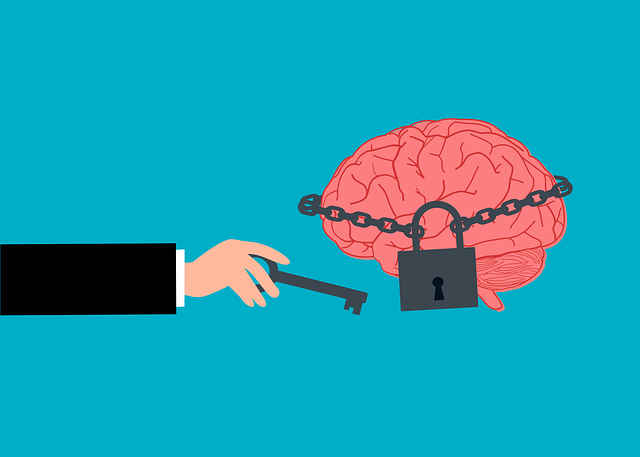Longmont Child Abuse Therapy focuses on teaching children crucial emotion regulation skills through holistic methods, addressing past traumas while fostering emotional intelligence. This approach combines evidence-based practices with compassionate support, empowering kids to manage emotions effectively, prevent mental health issues like depression, and build resilience. By integrating self-care routines, empathy development, community outreach, and techniques like self-awareness exercises, Longmont Child Abuse Therapy equips children with tools to navigate life's challenges with a positive mindset and enhanced well-being.
Emotion regulation is a vital skill for children to develop, as it can significantly impact their overall well-being and mental health. This article explores effective teaching techniques, focusing on the holistic approach offered by Longmont Child Abuse Therapy. We delve into strategies that empower kids to manage emotions, prevent trauma, and build resilience. By understanding the importance of emotion regulation, parents and caregivers can create a supportive environment, fostering healthy emotional development in children. Learn practical ways to guide young minds through complex feelings, ensuring they thrive in a world filled with diverse emotions.
- Understanding Emotion Regulation and Its Impact on Children
- Longmont Child Abuse Therapy: A Holistic Approach to Teaching Emotion Regulation Skills
- Practical Techniques for Effective Emotion Regulation Teaching
- Fostering Resilience: The Role of Emotion Regulation in Preventing Future Traumas
Understanding Emotion Regulation and Its Impact on Children

Emotion regulation is a crucial skill for children to develop as it directly impacts their overall well-being and future mental health. Teaching kids effective emotion regulation techniques can help them navigate challenging situations with resilience and adaptability. By understanding and managing their emotions, children can build better coping skills, improve their relationships, and enhance their academic performance.
In Longmont Child Abuse Therapy settings, professionals focus on empowering young individuals to recognize and express their feelings in a healthy manner. This process involves teaching self-care routines for better mental health, which can prevent issues like depression. Through various activities and strategies, children learn to identify triggers, understand the connection between thoughts and emotions, and develop constructive ways to respond to stressful situations. Such interventions are vital in fostering emotional intelligence, ensuring kids can thrive in their personal and social environments.
Longmont Child Abuse Therapy: A Holistic Approach to Teaching Emotion Regulation Skills

Longmont Child Abuse Therapy offers a comprehensive and holistic approach to teaching emotion regulation skills, focusing on nurturing both the mind and spirit. This unique method recognizes that emotional well-being is intricately linked to overall health and happiness. By addressing past traumas and fostering healthy coping mechanisms, the therapy provides children with the tools necessary to manage their emotions effectively. The program is designed to build inner strength and confidence boosting strategies, ensuring kids can navigate life’s challenges with resilience.
Through interactive sessions tailored to each child’s needs, Longmont Child Abuse Therapy teaches practical emotion regulation techniques that extend beyond the therapy room. These skills empower young individuals to prevent burnout and cultivate a positive mindset, even in the face of adversity. By combining evidence-based practices with compassionate support, this approach ensures children develop emotional intelligence and inner strength, setting them up for success in all areas of life.
Practical Techniques for Effective Emotion Regulation Teaching

Teaching effective emotion regulation skills is a powerful tool for individuals to navigate life’s challenges and promote mental well-being. This process, often integral in Longmont Child Abuse Therapy settings, involves guiding students to understand and manage their emotions constructively. One practical technique is encouraging the development of empathy—a cornerstone of emotional intelligence. By fostering empathy, educators can help students recognize and connect with others’ feelings, leading to improved social interactions and reduced reactive behaviors.
Additionally, integrating community outreach program implementation can provide real-world context for learning. These programs often offer diverse perspectives on emotion regulation through cultural and social lenses. Simultaneously, promoting self-care routines as part of the curriculum is a game-changer. Encouraging students to prioritize their well-being, including activities like mindfulness exercises or maintaining a consistent sleep schedule, equips them with long-term strategies for managing emotions effectively.
Fostering Resilience: The Role of Emotion Regulation in Preventing Future Traumas

Emotion regulation plays a pivotal role in fostering resilience, especially for individuals who have experienced traumatic events such as child abuse. Learning and practicing effective emotion regulation techniques can help individuals prevent future traumas from overwhelming their mental health. By developing the ability to manage and understand their emotions, individuals become better equipped to navigate challenging situations with composure. This process involves cultivating self-awareness exercises that enable them to recognize emotional triggers early on, thereby allowing for timely intervention using crisis intervention guidance.
Longmont Child Abuse Therapy often incorporates compassion cultivation practices as a means of enhancing emotion regulation. These practices not only promote self-compassion but also help individuals extend compassion to others. As a result, they build emotional buffers that protect them from the adverse effects of future stressors, ensuring better mental health outcomes and enhanced resilience in the face of adversity.
Emotion regulation techniques are a powerful tool for empowering children, especially those who have experienced trauma. As discussed, Longmont Child Abuse Therapy offers a comprehensive approach, combining holistic methods with practical skills to help kids navigate and manage their emotions effectively. By teaching these strategies, we not only support the immediate well-being of children but also build resilience, reducing the risk of future traumas. With consistent practice, these techniques can become a child’s symphony of emotional control, enabling them to thrive in even the most bustling environments.














